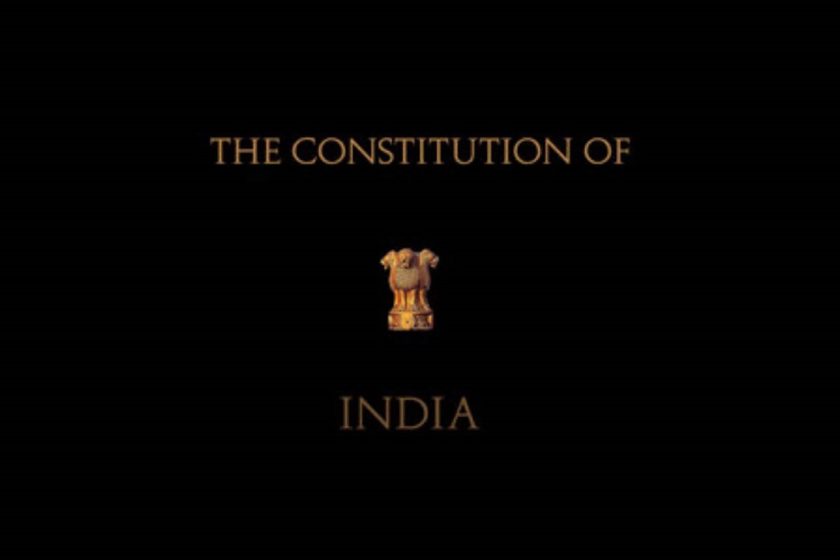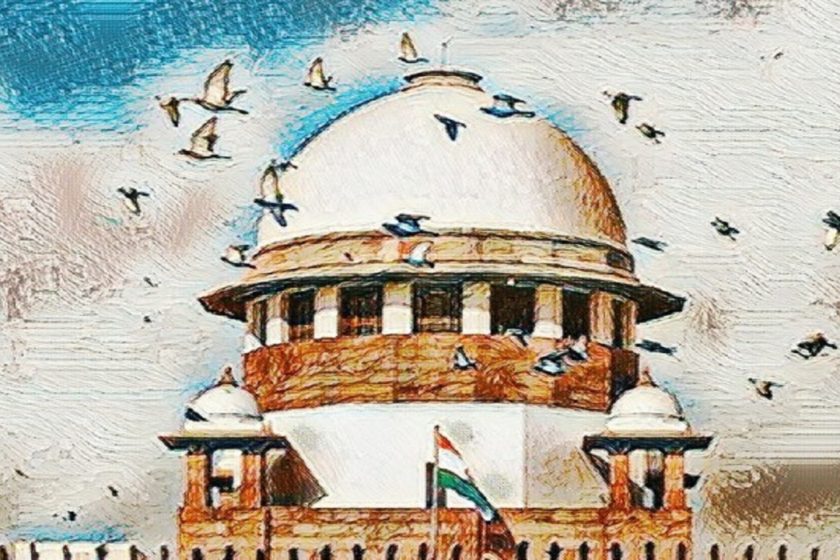Constitution of India, the need for referendum
Every nation has its own bedrock based on which its institutions, laws and administrations are built on. For countries like Saudi Arabia it is the Quran and the Islamic theology that forms this bed rock. For some states like Britain it is the customs and rights that evolved over time. However most states have a written Constitution that acts more like an agreement between the government and the governed. The expectations of the people from the state, the powers that the people delegate to the state to fulfil the expectations, the nature of the state and the freedom enjoyed by the people are enshrined in this Constitution. As such the Constitution is a vital document that is defined by the goals of its civilisation, aspirations of the people and acceptability of the powers of the state by the people.
The aspirations of the people are taken care during the drafting of the Constitution. For example the United States Constitution enshrines the goals for which the American people had fought for from the British. And many times the Constitutions borrows heavily from earlier declarations and documents that encapsulates the aspirations of the people. In case of United States, its is the 1776 Declaration of Independence and the Articles of Confederation which was adopted in 1781 that was relied during Drafting of the US Constitution.
And it is for doing justice to the lofty goal of reflecting the will of the people, that the persons entrusted for drafting the constitution are carefully selected by the people themselves. The western democracies with stability and known as haven for human rights have done this well. The exceptions are the countries like Syria which have drafted and adopted a new Constitution by a Committee appointed by the government which doesn’t reflect the will of the people.
Indian Constitution is in shaky grounds even at these basic premises. The first and foremost is the representation of the Constituent Assembly which framed the Indian Constitution. The Constituent Assembly of India derived its powers and was constituted as per the decisions of the British Crown and it invariably included people inimical to the core values the people of Bharat always stood for. The Constituent Assembly had representatives of the Muslim League who succeeded in blocking the core Dharmik values of Indian civilisation from being enshrined in the Constitution.
Also the Constituent Assembly was never a representative of the populace of Bharat, but only the miniscule of those elite who had the right to vote to Provincial Assemblies in elections held in 1946. The Provincial Assemblies further selected the Constituent Assembly for Bharat, with special representation ensured for Muslims. The large section of Indian population thus was deprived of their representation in Constituent Assembly, nor had a say in who drafted the vital document which governed their relation to the state.
Secondly the Constituent Assembly largely was a motley crowd led by English educated barristers, Indians by birth but British by values. The result was that the awe and inspiration they had for the British crown and the Westminster model of governance seeped its way to the Indian Constitution rather than adoption of an administration that synchronise with Indian ethos and diversities. As a result the treatises and ancient wisdom of Bharat was substituted by the colonial era laws like Government of India Act 1935 and Government of India Act 1919. The Constituent Assembly borrowed heavily from the laws which the British enacted for exploitation of Bharat. The result of this ‘heresy’ is that the nature of the Government of India remained same that of British. Justice, equality remains a distant dream as the colonial era bureaucracy and judiciary still dispense justice in still the colonial ways based on who stand in front of them and not based on the concept of Dharma.
The discussions and debates during the drafting of Constitution is recorded and accessible easily. An important section is where Jawaharlal Nehru succeeded in inserting provisions which goes against the concept of equality and justice. In his intervention, Nehru claimed that the Constitution of Bharat should be accommodative of the apprehension of the minorities and demanded inclusion of various provisions which he said will alleviate fears of minorities in Bharat. Nehru was hopeful that the partition of Bharat will fail and hence the Constitution should be drafted keeping in mind the undivided Bharat including both Pakistan and Bangladesh with sizeable population of Muslims. The Articles 25-32 was thus included, popularly known as minority rights. Such additions altered the character of the Constitution of Bharat and it can be reasonably said that it never represented the aspirations of the people of Bharat. And if given a chance the people of Bharat would have rejected the said articles.
All the infirmities and wrinkles during drafting stage of Indian constitution could have been ironed out if it had stood the minimum test required for any Constitution, that is acceptance of the majority of the people via a referendum. Indian Constitution fails miserably at this critical juncture as the people of Bharat were never given an opportunity to ratify the Constitution and signal its acceptance.
It was assumed that the people have accepted the Constitution of India. The claims will fall flat as the Drafting Committee and Constituent Assembly were appointed by British crown, and the representation of people of Bharat was miniscule. The entire document was drafted by British educated barristers who stitched together what they plagiarised from various Constitutions from around the world. Even today, the Constitution of Bharat is the domain of the lawyers than ordinary Indian citizens.
Due to such infirmities in the drafting stage, the Constitution of India has resulted in aggravating the inequalities and injustice which existed during British rule. Constitution of Bharat has relegated the status of Hindus to second class citizens of Bharat who are having lesser rights than the minorities. The result being that the state thrives on the money which Hindus offer to their Gods, thereby depriving resources for strengthening their religious and cultural institutions. The judiciary and bureaucracy still carries the white mans burden, and they lighten their burden by imposing Victorian moralities and British laws on the thousands years old rituals and traditions of Bharat. The colonial era exploitation still exists and the victims are those who consider this land as their own.
The present Constitution of Bharat has thus carried the Indian state to a state of dysfunction, the tension that Constitution is causing has the potential to cause another partition or even the demise of Indian civilisation and all the values that it represents.
It is at this crucial juncture that amends has to be made and correct the past mistakes. And the best way to start is by giving the people of Bharat what has been denied to them for decades, the freedom to accept or reject the Constitution that defines their lives and existence in this nation. A referendum needs to be held to ratify the Constitution of India. Else the Constitution of Bharat in its enforcement will draw parallels to the military dictatorships where the people plays no role in defining or accepting the bed rock of their nation.
#ReclaimTemples


